What Affects The Price Of Scotch Malt Whisky Society Whisky
Selling Scotch Malt Whisky Society whisky can seem like a daunting prospect. After all, there are so many ways that you can sell whisky. But which way is the most effective? And, how can you get the best price for your whisky? Well, that is where we come in.
At Mark Littler Ltd we can help you to sell your Scotch Malt Whisky Society whisky quickly, stress-free, and for the best price. We make selling whisky online easy with Mark Littler Ltd.
What To Look For
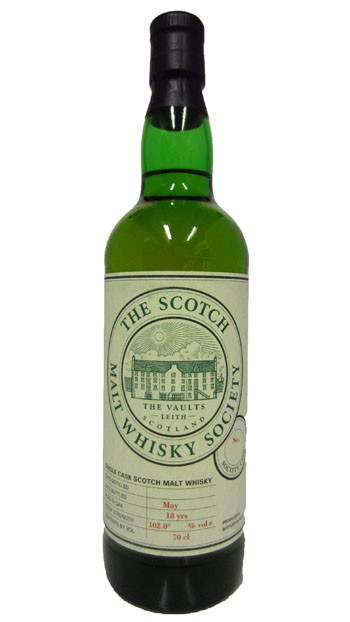
It is difficult to find details regarding many of the early bottlings from the SMWS as they did not keep record, but approximately 4,000 bottles have been produced since 1983. However, despite their name, they did not just focus on Scotch whisky but later moved into the bottling of Irish and Japanese whiskies.
All bottles produced by the SMWS are numbered according to their distillery and bottle number, hence the first bottle produced was 1.1 (Glenfarclas was distillery number one). Each distillery has its own code, which you can find in the list below. Initially bottle numbers were handwritten in red ink, as with the date of distillation, bottling and ABV.
A bottle of SMWS Brora 1976 61.1 recently sold for £6,001. You will notice from the list that 61 is Brora’s distillery code, so this was the first whisky bottled at this destination.
Discover The Price Of Your Scotch Malt Whisky Society Whisky With Mark Littler Ltd
Free Valuation Request
The Six Factors That Affect The Price Of Scotch Malt Whisky Society Whisky
There are six factors that will affect the price of your bottle of Scotch Malt Whisky Society whisky. These are the age of the whisky, the bottling date, the vintage, whether it is a single cask edition, the level of the whisky and the condition of the label and box.
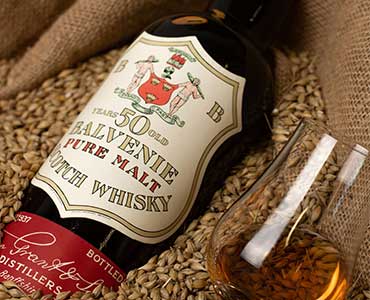
Age of whisky
This refers to the number of years the whisky has spent maturing in the cask, not how long it has been in the bottle. The age is indicated on the label and can vary from 3 to well over 30 years old.
Most collectible bottles are over 10 years old and value usually increases with the age of the whisky. Whisky over 30 years old is the most sought after as it is the rarest.
Any whisky bottled at over 50 years old is highly desirable and a very limited number of distilleries have released whisky over 50 years old.
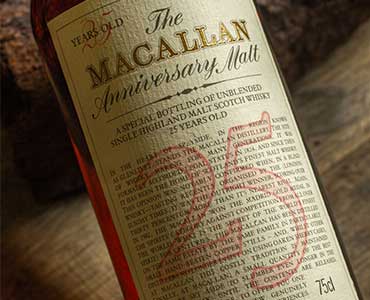
Bottling date
This relates to when the whisky was bottled. As bottles from a specific year are consumed, the remaining bottles become rarer, so even a ‘standard’ malt released in the 1980’s can become sought after.
If vintage is not stated bottle volume can be an indicator of bottling era. Bottles from the 1970s and earlier use fluid ounces (FL.OZ). In the 1980s standard bottles size was 75cl and in 1991 the standard size (in the EU) changed to 70cl. Note that standard bottle size is still 75cl in the USA, and other bottle sizes are occasionally used, in which case you will have to use other indicators.
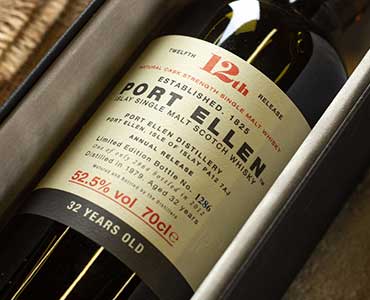
Distillation year
The distillation year might also be described as the bottle vintage, and refers to the specific year in which the whisky was distilled (made). It is one of the most important factors that can impact the price of your collectible whisky.
In general, the earlier the distillation year the more collectible your bottle of whisky. Bottles from the first half of the 20th century are highly valued by collectors and fetch a premium. That being said, the bottler is also important, and so two whiskies distilled in the same year, at the same distillery, but bottled by different bottlers will vary in value.
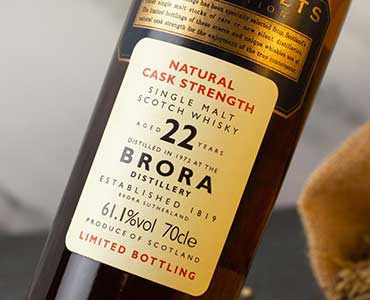
Label & packaging
The label on a bottle of collectible whisky is very important and should be in pristine condition to fetch the highest value. If the label is damaged in any way, such as scratching, blemishing, pealing or mould, then this will have a negative impact on the value.
The box condition is almost as important as the label condition, and the correct box is very important to collectors. A bottle with a damaged or marked box will be worth less, and a bottle without its original box could be worth up to 30% less.
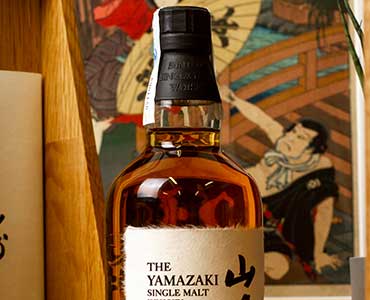
Level
The level of the whisky has a large impact on the value. On almost all bottles it should be well into the neck, a level in the lower half of the neck is worth less and levels into the shoulder will significantly impact the value.
Older bottles are more prone to a drop in level as the bottles were not intended for storage. A drop in level implicates the long term storage prospects for any collector but as alcohol is more volatile than water it is the alcohol that will evaporate first, which impacts the flavour.
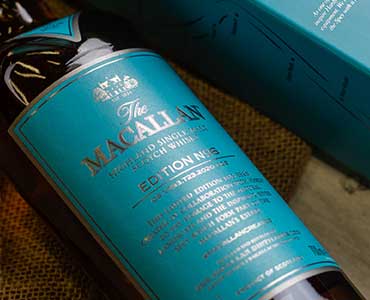
Single Cask Bottlings
Single cask bottlings are generally more sought after, as by default they are unique and usually of a significantly limited edition. Look out for numbers on your bottle like XXX/250, with the second number generally being less than 500, which would indicate a single cask edition.
Longer edition numbers such as XXX/5000 are often also collectible. These longer numbers usually indicate that the release is a vatting of a number of casks.
How We Can Help Sell Your Scotch Malt Whisky Society Whisky
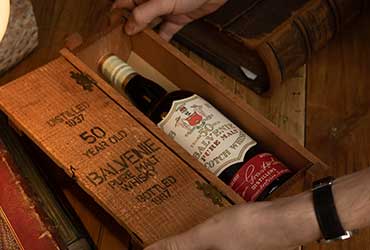
Private Sale
Our brokerage service is a simple, stress-free way to sell whisky. We will broker the sale between you and one of our buyers. For this service, we charge a 10% commission (inc. VAT) of the final sale price of the item. This avenue is fast and simple. We will take care of everything for you.
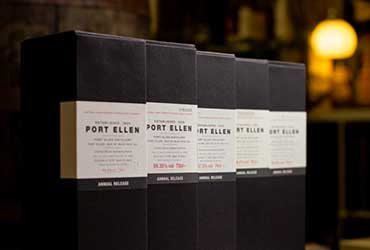
Auction
At Mark Littler Ltd we can also help you to sell whisky via auction. We have teamed up with the country’s leading online whisky auctions to help you to sell whisky at auction without the hassle. This is a great option for lower-value bottles, or if you do not mind taking some risks.
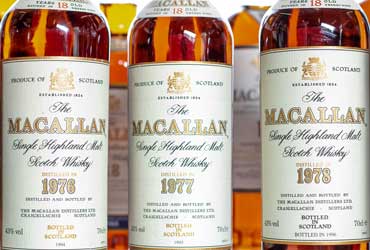
Shop
The final option is selling your whisky through our one-of-a-kind online shop. On our shop, we broker the sale of high-value bottles for our customers. Your bottle will sit amongst rare and expensive whisky and our advertising campaigns aim to draw the eye of whisky collectors everywhere.
What is the price of your Scotch Malt Whisky Society whisky?
In order to provide you with an accurate valuation please provide as much of the below information as you can.
There is more information about each section below the form.
The History Of Scotch Malt Whisky Society
Scotch Malt Whisky Society (SMWS) is a highly exclusive club for members and independent bottler that was first formed by some friends in 1983 in the Scottish capital, the group purchases and bottles whiskies from over 125 distilleries around the world and then sells them on to members. Ben Tindall, an architect, W Gordon Smith, a writer, David Alison, a contractor, Russel Hunter, an actor and Philip ‘Pip’ Hills, a tax accountant started it all.
Philip Hills was already a scotch enthusiast and spent much of his free time travelling the country and tasting at different distilleries. The first purchase they made was a Glenfarclas cask that they occasionally drew bottles from to share among themselves. A short time later the noted Vaults building became available and the friends officially set up the SMWS and the first bottling commenced, appropriately numbered as 1.1 from the Glenfarclas – a sherry cask – was released. After which the society released bottles every month until their expansion.
Although Hills left the society in 1995, it continued as a private organisation. In 1996 it introduced a private share scheme that used the funds raised to purchase another member’s club, this time in London at Greville Street. It then opened a third base in Edinburgh, along Queen Street. However, this was subsequently purchased by Glenmorangie on the same year.
For its 25th anniversary the society made some striking changes, to both the label and the shape of the bottle. Then, further changes were made to their bottles for new releases during 2017 and onwards so that the styles of the whiskies were better emphasised.
There is no argument that The Scotch Malt Whisky Society is one of the most influential bottlers with regard to the popularity for single malts, not just throughout the UK, but around the world. They are noted as being one of the first to really promote the idea of single casks and bottling malts at cask strength.
Glenmorangie Plc purchased SMWS in 2004 and it later passed to private investors in 2015.

Send us details about your bottle directly via email or use the form below.

We contact our international network of customers for the best offers.

If you decide to proceed with an offer we issue you with a contract.

Send us your bottle. We have a fully insured courier service available.

We complete the sale with the buyer and send your funds via BACS.
Bottle Selling FAQ

“I found Mark’s details online after looking to sell a collectable bottle of whisky. I was going to use a well know auction site but Mark secured an offer higher than the highest estimation from any auction house, within days, even after the 10% commission was deducted. Communication was perfect; punctual, to the point and polite. Collection and delivery were taken care of by Mark and instruction was clear and easy to follow. Payment was received to my bank within days of posting the bottle. I can’t recommend Mark enough; he runs a tight ship gets top end offers from his clients and delivers quickly.”
Rod Fountain, via Google
“Mark has been very helpful in helping me sell a bottle of whisky which was given to my father many years ago. He was very professional and was always quick to reply to my questions. Not knowing anything about whisky, Mark was there to offer some good advice and I believe he is very knowledgeable about his work. The sale was done very [quickly], and the money was in my bank account the next day. I would highly recommend his services.”
Kim Hendrickx, via Google


“Wow, what a refreshing change it was to meet Mark. He was the consummate professional with an approachable and warm personality who clearly had an in-depth knowledge of his subject which he used to give me a first-class service when I wanted to sell a whisky collection. For anyone who is considering any similar specialist whisky transactions I can certainly recommend him without reservation.”
Duncan Chambers, via Google



